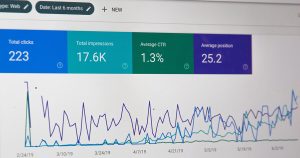URL shortening services have evolved significantly over the years, transforming the way we share and manage links on the internet. In this article, we will explore the latest trends in URL shortening services and provide insights into their future prospects, particularly in the context of SEO.
Current Trends in URL Shortening Services
1. Enhanced Analytics Integration
Modern URL shortening services are increasingly focusing on providing more robust analytics integration. Platforms like Bitly and Rebrandly now offer advanced analytics tools that go beyond simple click tracking. Users can access detailed data on audience demographics, geographic location, and even user behavior after clicking the shortened link.
2. Customization and Branding
The trend towards customization and branding continues to grow. Services like Rebrandly specialize in offering branded short domains, allowing businesses to maintain a consistent brand image even in their shortened URLs. This not only improves brand visibility but also instills a sense of trust among users.
3. Security Features
With the rising concerns about online security, URL shortening services are incorporating enhanced security features. Some services provide link expiration options, allowing users to set a timeframe for the link’s validity. This feature is particularly useful for time-sensitive promotions or campaigns.
4. Integration with Social Media and Marketing Tools
URL shortening services are increasingly integrating with popular social media and marketing tools. This integration simplifies the process of sharing shortened links on various platforms and allows for seamless tracking of link performance across different channels.
Future Prospects
1. AI-Driven Optimization
The integration of artificial intelligence (AI) is anticipated to play a significant role in the future of URL shortening services. AI-driven optimization can analyze user behavior, preferences, and trends to automatically suggest the most effective times to share links, improving overall engagement.
2. Advanced Link Attribution Models
As the demand for more accurate performance measurement grows, URL shortening services are likely to adopt advanced link attribution models. These models will provide a clearer understanding of the customer journey, helping businesses attribute conversions more accurately to their marketing efforts.
3. Global Expansion and Multilingual Support
The global nature of online interactions calls for URL shortening services to expand their reach and provide multilingual support. Future services may offer features that automatically generate short URLs in different languages, ensuring a more inclusive and user-friendly experience.
4. Blockchain Integration for Transparency
To address concerns about link reliability and transparency, some URL shortening services may explore blockchain integration. This technology can provide an immutable record of link clicks, ensuring data accuracy and enhancing trust in link analytics.
Conclusion
URL shortening services are adapting to the changing landscape of online communication, incorporating advanced features and technologies to meet user demands. As we move forward, the industry is likely to witness further innovation, with AI-driven optimization, advanced attribution models, global expansion, and blockchain integration shaping the future of URL shortening. Staying informed about these trends will be crucial for businesses and marketers aiming to optimize their online presence and SEO strategies.
















